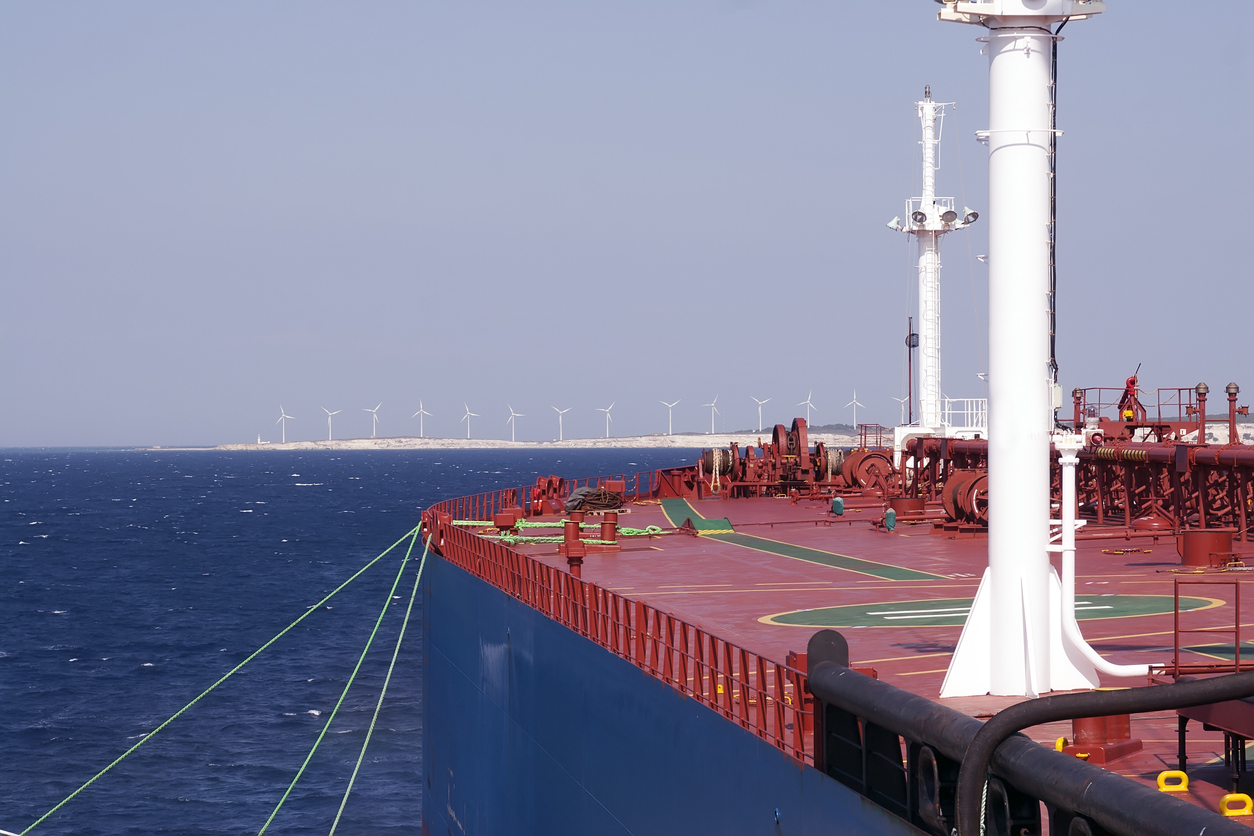A jurisdiction clause in a bill of lading issued by a carrier may, under certain conditions, be binding on a third party (consignee) who has not accepted the jurisdiction agreement but who asserts claims under the bill of lading.
1. The ECJ considers the question in the “MaerskCase”
In a new judgment (Joined Cases C-345/22 - C-34 7/22 of 25 April 2024), the Court of Justice of the European Union (ECJ) again addressed this issue. The cases involved the following circumstances:
A Peruvian seller, Aquafrost, sold various goods to a Spanish buyer, Oversea Atlantic Fish (“Oversea”), on CFR terms. Aquafrost entered into a contract of carriage with Maersk Line A/S (“Maersk”), who issued a bill of lading for the transport. Upon delivery of the goods, damage due to transport was discovered, and the Spanish cargo insurers of the buyer, Allianz, filed a law suit against Maersk in a Spanish court. Maersk sought dismissal based on a jurisdiction clause in the bill of lading stating that all disputes were to be resolved under English law by the courts in London: In all other cases, this bill of lading shall be governed and interpreted in accordance with English law and any disputes arising therefrom shall be submitted to the High Court of Justice in London, the jurisdiction of the courts of another country being excluded.”
Under Spanish law, Oversea, by accepting the delivery under the bill of lading, had assumed Aquafrost’s rights and obligations according to the bill of lading, except for the jurisdiction clause. Based on this, the Spanish first-instance court proceeded with the case, ruling that the jurisdiction clause was not binding on Oversea, whose rights Allianz had assumed. The judgment was appealed to the Audiencia Provincial de Pontevedra, which referred to the ECJ the question whether a legal position in which the consignee of a bill of lading assumes the sender’s rights under it — except the jurisdiction clause — is compatible with Article 25 of the Brussels I Regulation.
2. The Court’s Ruling
The ECJ confirmed that a jurisdiction clause in a bill of lading can bee enforced against a third party if, upon acquisition of the bill of lading, the third party assumed all rights and obligations relative to one of the original contracting parties. The Court emphasized that whether a third party has entered into the contract in this way must be assessed according to the national law applicable to the merits of the case, determined by the relevant private international law rules — not the law designated by the jurisdiction clause.
3. Implications in Danish Law
This raises the question of the extent to which, under Danish law, a consignee can be considered to have assumed all of the shipper’s rights and obligations under the bill of lading. If the consignee is deemed to have entered into such rights and obligations, then the jurisdiction clause in the bill of lading wil lbe binding on the consignee according to Article 25 of the Brussels I Regulation.
A buyer of goods (bill of lading consignee) who has not entered into acontract of carriage with the carrier but receives a bill of lading issued by the carrier does not, by acquiring the bill of lading, assume the shipper’s obligations toward the issuer of the bill of lading according to general contract law principles of Danish law.
Still, the consignee may become bound by the jurisdiction clause if it otherwise assumes the shipper’s rights and obligations under the bill of lading. Such assumption of obligations may occur if the consignee demands delivery ofthe goods pursuant to the bill of lading. According to section 269 of the Danish Merchant Shipping Act, the consignee, “by taking delivery of the goods" becomes liable to pay freight and other claims the carrier may have under the bill of lading. Such claims may include freight or demurrage. Thus, the consignee — by accepting the goods — may become liable as debtor for these claims, even if asserted after delivery.
It is unclear whether the named consignee would be similarly bound if it does not actually receive the goods (e.g., due to loss in transit) but assert a compensation claim under the bill of lading. By asserting such a claim, the consignee is exercising a right under the bill of lading, but they may not be deemed to have assumed the shipper’s obligations to the same extent as if the goods were delivered. This question remains unsettled.
4. Unclear Scenarios under Sea Waybills
If the carrier issues a sea waybill instead of a bill of lading, it is doubtful whether the consignee — merely by taking delivery of the goods — can be deemed to assume the shipper’s rights and obligations toward the carrier.According to section 269(2) of the Danish Merchant Shipping Act, if delivery occurs otherwise than under a bill of lading, the consignee is only liable for freight and other claims under the carriage contract if they were notified of such claims upon delivery or knew/ought to have known the carrier had not been paid. This aligns with the fact that, when a sea waybill is used, the consignee does not need to present the document to receive the goods and may thus be unaware of the relevant obligations. Therefore, the consignee cannot be considered to have assumed the shipper’s obligations under the transport contract merely by receiving the goods. Additionally, it must be proven that the recipient was acting in bad faith about these obligations yet still demanded delivery.
Based on this, it is submitted that a consignee cannot, pursuant to Danishlaw, be deemed bound by a jurisdiction clause in a sea waybill issued by the carrier solely due to the receipt of the goods under Article 25 of the Brussels I Regulation.











